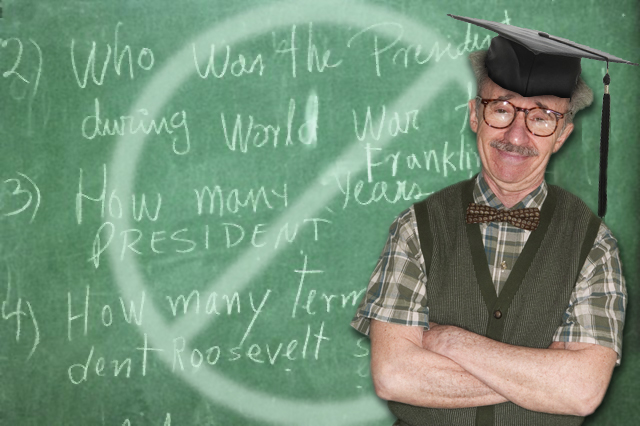
If you’re like most people, you hated history class. The names, the dates, the strange places, the seeming irrelevance of it all …
Now me, I was one of those kids who actually enjoyed history class. I was fascinated by ancient cultures, human behavior, what has gone before. I’d often sit in class reading ahead in the book or, on my own time, reading in greater depth about that which was being taught. I still enjoy history, considering it as good if not more entertaining than fiction … not that I manage to retain much more than a general sense of what I consume but the minutiae of the past continue to fascinate me.
So, knowing that about me, allow me the heresy of stating that history, as typically taught, is a great waste of time.
They say (and I agree) that those who don’t know their history are doomed to repeat it – but I don’t think much of just this kind of value is imparted in history classes – and we don’t seem to be learning that.
So what if someone was named George Washington? Who cares on what date the Gettysberg Address was given? How does knowing who invented the cotton gin help you in any way? Do you even know what a cotton gin is?
History is, indeed, incredibly important and the lessons it can impart are invaluable – yet we tend to serve history up as though it were nothing more than a series of obscure celebrities and de-boned action/adventure stories.
Horsehockey.
You *don’t* need to know if someone was named George Washington, on what date the Gettysberg Address was given, or who invented the cotton gin. These details should, instead, be taught alongside history for those students who show an interest in knowing them – or in a different class entitled “Patriotism 101.” The bulk of people don’t need to know this stuff, wont remember it, and will find the real value of history obscured by it.
History needs to be distilled down into simple lessons about human behavior with general details about what does and doesn’t work, based upon what we *do* know about history. It should be about how important diplomacy and working together is … and what happens if you don’t. The facts that constitute the bulk of history classes now can then be used as examples of how (or how not) to achieve these ideals – but an inability to rattle off every US president or the dates of the civil war should not be a requirement to graduating any more than competing as a wrestler should.
Knowing how your (or other’s) countries were formed, where they came from, where they are going, and why they did (or didn’t) succeed are important and illuminating but, when fed as an endless series of seemingly arcane names and dates to be memorized and regurgitated by rote, they serve very little purpose for most of us.
Yet I have to admit, it is a daunting task. How does one go about distilling said information without providing a political slant and short-changing the real value that a greater detailed look into the past can bring? A damned good question – but I think it can be done. Further, the students, particularly the younger ones, need a better understanding of *why* history is so important – and a series of hoary, old saws about doomed repetition wont serve.
Were I allowed to teach such a history class, I would begin with a simple exercise designed to impart just that:
First I would separate the class into three groups.
The first, while the other two groups were sequestered in another room, would help to set up a series of actions in the class room for the others to follow, including a couple that were booby-trapped – say a bucket of confetti that would spill down upon whomever opened a particular cabinet door.
The second would come in and, while being filmed, follow these directions, likely tripping all of the traps in the process.
The third would *watch* the film of the second, then follow the instructions of the first yet, informed by the film, do so in such a way as to avoid the pitfalls of the second.
And that, I would say, is the value of history.
